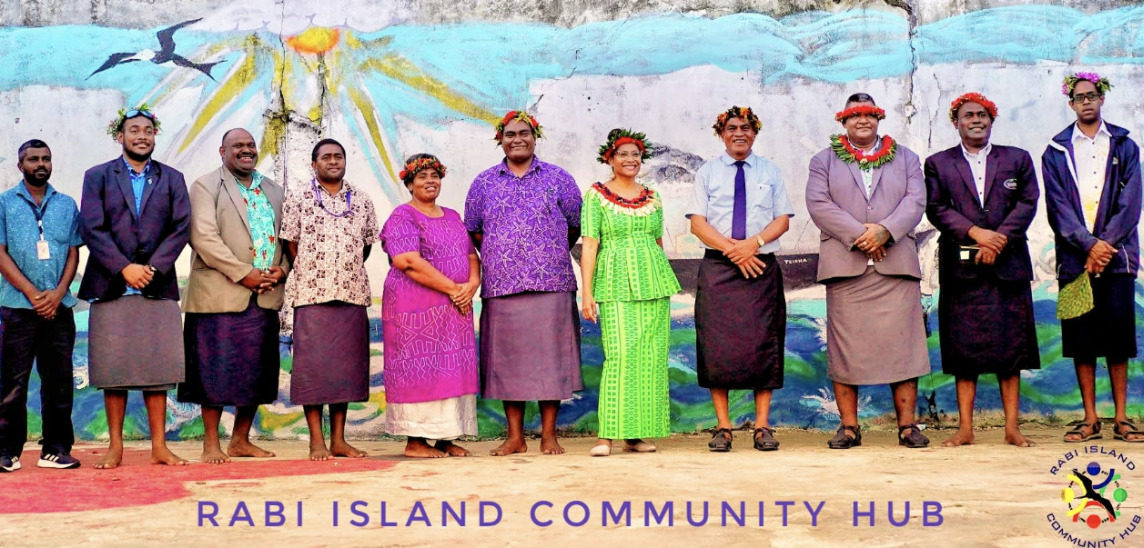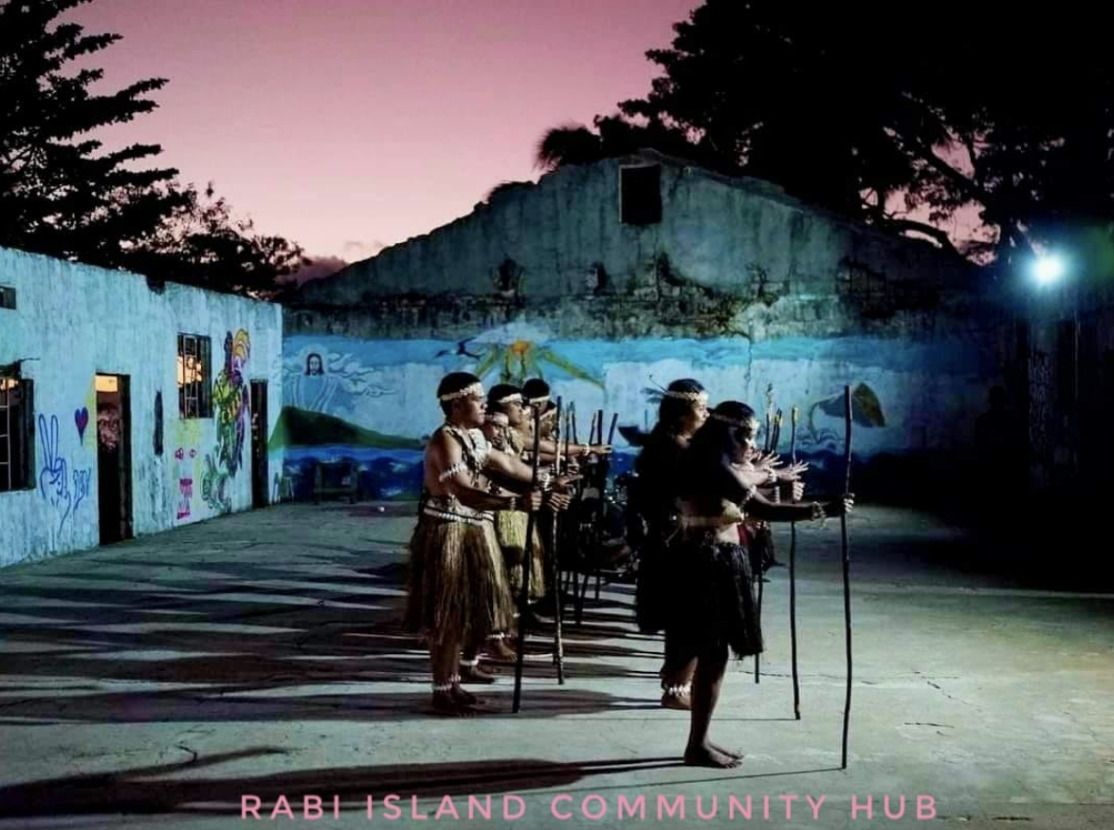To celebrate World Indigenous Day, the Rabi Island Community Hub (RICH) hosted a successful two-day summit for the Banaban community to celebrate and honor their resilience 77 years after being displaced from their ancestral home.
The Banaban people were forcibly displaced from their indigenous lands in Banaba, Kiribati to Rabi Island, Fiji in 1945 due to extensive mining carried out by colonial authorities. The environmental destruction of their homeland and the ongoing human rights struggles they face offer powerful lessons to current and future climate-displaced communities, and were themes of this first-ever convening.
The summit was officiated by Fijian Minister for Women, Children and Social Protection, Honorable Lynda Tabuya. She conveyed her appreciation to the Rabi Council of Leaders for being named guest of honor at the celebrations, and stated: “We the indigenous peoples are inheritors and practitioners of our unique cultures and ways of relating to people and the environment. We strive to retain our social, cultural and economic and political characteristics that are distinct from those of the dominant societies in which we live.”

The United Nations message for World Indigenous Day this year was “Indigenous Youth as Agents of Change for Self Determination.” As such, the summit focused on empowering Banaban youth through an art mural project, dance, and cultural activities including weaving.
“Indigenous youth are working as agents of change at the forefront of some of the most pressing crises facing humanity today,” stated Hon. Tabuya.
“The new generation of indigenous advocates are mobilizing to shift the narrative around Indigenous Peoples. They have become the driving force for societal change through social mobilization, making use of online platforms to showcase and celebrate their cultures, languages, and knowledge systems to a wider audience”.
The summit was supported by the International Center for Advocates Against Discrimination (ICAAD), Unitarian Universalist Service Committee, the Fiery Canoe Foundation, Greenpeace, 350 Pacific Climate Warriors, Banaban Women Organization, Rabi Council of Leaders and the community members of Rabi. It included the launch of a virtual arts exhibition, sports and cultural activities, policy reports, and the revival of the Banaban Cultural Dancing Group to support key advocacy objectives.
Fijian Assistant Minister for Itaukei Affairs, Heritage and Arts Honorable Isikeli Tuiwailevu, also attended the summit, noting that the “the Ministry of Itaukei takes pride in preserving culture and identity and we congratulate [the Banaban community] for this undertaking.”
Hon. Tabuya also launched the Banaban Women Organization Strategic Plan 2023-2027, and commended the women of Rabi for being proactive in presenting their 5-year strategic plan to the Ministry so their needs could be best ascertained.
Banabans on Rabi face numerous challenges that include access to basic needs like food and water and socio-economic deprivation, as well as challenges in preserving cultural traditions and heritage. Banaban Women Organization has been working hard to improve these issues.
Hon. Tabuya assured the Banaban people that the Government of Fiji recognizes “the value of our diverse cultural identities, and will continue to work towards strengthening the revival and preserving of our diverse traditions, cultural identities, natural resources and languages.”
The Banaban community expressed their sincerest gratitude towards the both ministers for choosing Rabi to commemorate World Indigenous Day. As part of the celebrations, Rabi also welcomed the Greenpeace Rainbow Warrior – a ship that is currently sailing the Pacific gathering climate change evidence to present to the International Court of Justice next year.
“It was an honor to have the Greenpeace Rainbow Warrior on Rabi,” said Rae Bainteiti from RICH.
“Across the Pacific, there are countless examples of how climate change is already impacting our communities. It is here and now. We Banabans experienced the trauma of displacement and dispossession over 70 years ago, and are proud to be standing with our brothers and sisters on the climate frontline calling for international action so that the same mistakes are not made again.”

